Chemical technology of ceramics and glass department traditionally has close international relations with educational institutions and scientific organizations of other countries.
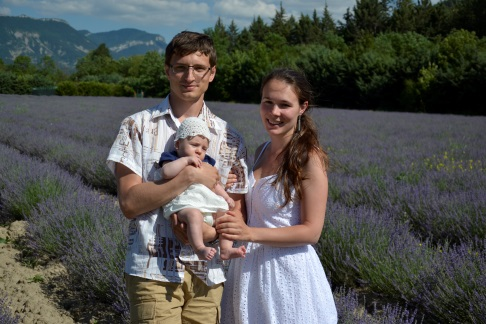 Anna Klimenko, graduate of 2010
Anna Klimenko, graduate of 2010
I heard about the exchange program on the third course. The idea seemed tempting, but not real. But I decided to participate. I studied the language throughout the year. Participants in the program were given scholarships – some received scholarships for the first year of study, the second for the second half. This was a significant help, without which I could not afford to live in France. I learned the language on the spot in two months. This was more than enough to start a master’s degree. Before the beginning of the classes, we had several introductory lectures on each specialty – inorganic, organic and polymers. Then it was necessary to choose a specialty. I chose polymers, where, it seemed to me from introductory lectures, it was more interesting. Lectures as such are not there, teachers give out printouts of the material, and how would they comment. The first such abstracts were simply impossible to read because of the translation of virtually every word. In January, we had 10 written exams for the week. Twice a day. It was difficult. In the second semester, it was easier. Exams were also 10, but probably already adapted. From May to July there was an internship in the laboratory. I was engaged in the synthesis of fluorescent latex by miniemulsion. At the end of the work the students wrote a rather condensed report and defended the work before the jury. The second year of study consisted of the first semester of lessons topped by a dozen exams and a six-month internship in the laboratory. The topic of my work was close to the previous internship, I also synthesized fluorescent latex, then I examined its size and dispersion by diffusion of light and electron microscopy, and also stabilized the water-oil interface by means of this latex. For the latter part of the work, a confocal microscope was used.
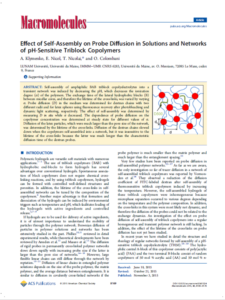

Theme of work “Synthesis and characterization of fluorescent latex”. At the end of the internship, a compressed report was also written and a defense was held in the form of a presentation. I graduated from the first year of the magistracy with a grade of 2 out of 17, and the second 5 out of 29. It’s not for boasting, it’s really possible and really to learn the language in two months for the subsequent training and passing the exams. After the internship, I was offered to apply for a postgraduate scholarship in the laboratory of Le Mans. Since October 2012, I started my work. The dissertation topic “Development of plurifunctional hydrogels from amphiphilic copolymers: interpenetrating networks and studying transport properties”. The essence of the work in creating a hydrogel from two copolymers, each of which is amphiphilic. Amphiphilic triblock consisting of a central hydrophilic block and two hydrophobic blocks at the ends of the polymer chain were used. Such polymer in water undergoes “auto-association” and at high concentrations forms a polymer network. The properties of this network depend on the properties and nature of the polymer. The combination of two such polymer networks was to result in synergies of mechanical properties. I did the synthesis of one of the polymers myself by the already existing protocol, and the second polymer was given to me already in the ready state. To study the properties of each polymer separately, and then the mixture, I used diffusion of light (statics and dynamics) and rheology. In addition to the main task, there were several secondary ones, which eventually occupied more than half of the thesis. During my work, I also used a confocal microscope to study the diffusion coefficient, NMR to refine the structure of the polymer. The Le Mans laboratory is not the most well-known and financially supported in France, however the students are provided with a lot of expensive equipment for research. The main sources of financing are enterprises and the state. In addition to research, I throughout the graduate school conducted laboratory work for students of different courses (a small bonus to the salary), this allowed me to get acquainted with other techniques of analysis. During my postgraduate studies, I attended one international congress in Nantes (France) and two in Le Mans. In addition, I visited the Sackle nuclear research center (near Paris) for neutron analysis of synthesized hydrogels. We had an excursion, showed the reactor, and also examined the samples.
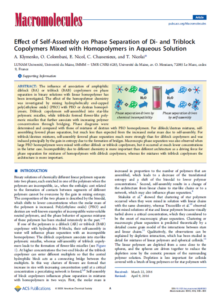
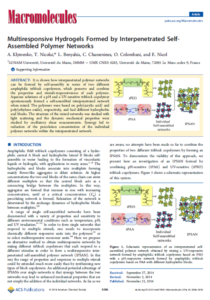
In conclusion, I want to say that I do not regret my participation in the exchange program. Life in France certainly has its own nuances. There are quite a lot of difficulties with the documents and with the search for work. Chemists are more difficult than computer science and economics with employment. During my studies and work in France, I visited several countries, saw a lot of interesting places and attractions. So, to all conscientious students who doubt or are afraid to participate in such programs, I can advise you to take a chance. It’s worth it, even if it’s difficult.
Here, perhaps, and all that I wanted to share with the guys who still decide to study by double diploma or not.
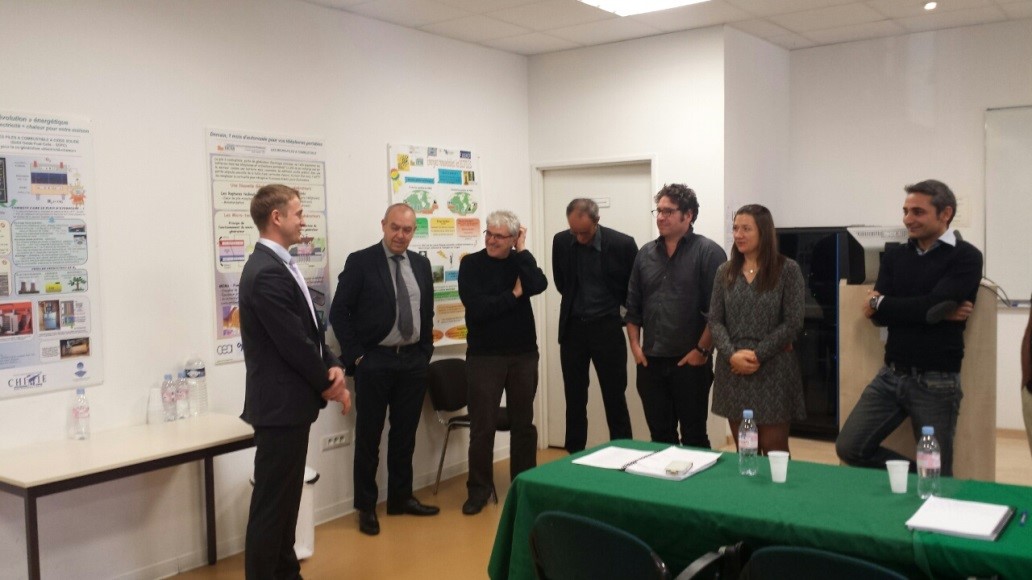
On November 27th in Montpellier, France, our graduate Sergey Pylypko defended his thesis. Since March he began working at a research center in Grenoble, France, as a Ph.D. in Chemistry and Physical Chemistry.
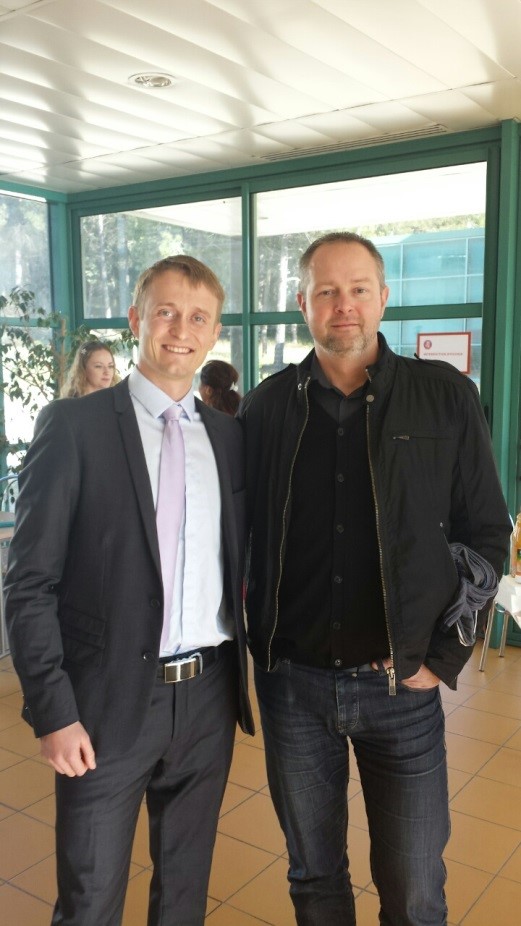
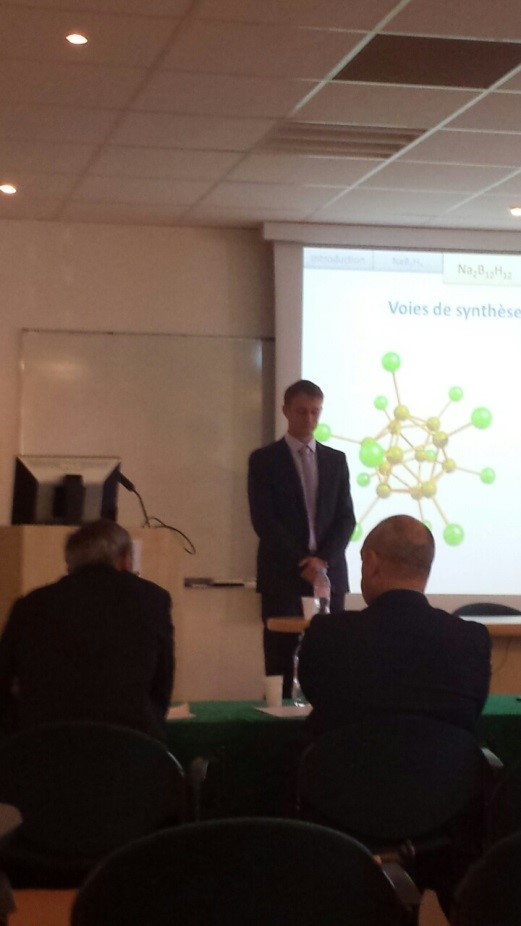
We sincerely congratulate our graduates, wish them creative inspiration, interesting, fruitful projects, not to forget the native Kiev Polytechnic. Achievement of our graduates is another confirmation that the National Technical University of Ukraine “Kyiv Polytechnic Institute”, the largest technical university of research-type Ukraine, one of the leading universities in Europe and the world, trains highly qualified international specialists.
Within the framework of the International Program for the Exchange of Students of Different Countries between the National Technical University of Ukraine “KPI” and the University of Le Mans (France) in 2008, 2 students studied, in 2009 – 2, in 2010 – 3, 2011 – 3. Currently studying 3 students In December 2008 and April 2009, the Department met with lecturers from the University of Le Mans (France), where, under the guidance of the professor B.Yu. Kornilovich, discussions were held on the training of students who study under the double-diploma program. In May 2011 assoc. prof. Spasyonova L.M. as part of the delegation of the Faculty of Chemical Technology took part in a methodological seminar on the educational process of the students of the University of Le Mans (France), who study under the double diploma program, and discussed joint research work with university professors and scientists, delivered a report on the scientific directions of work department.
Teachers of the department communicate with students who have already received masters diplomas and continue their studies abroad. Graduates of 2012, and they were 4, after graduation, entered the post-graduate course of various educational institutions and research institutes. At present, Kolmykov Alex graduated from the Université de Lorraine Graduate School in Nancy, France. Theme of his PhD “Synthesis of nanocrystals of semiconductors in aqueous medium with the help of microhydrodynamics”. Anya Klimenko defended her thesis, worked as a doctor of sciences at the University of Le Mans, France, for a long time and has now moved and works in Lyon. Anya Darmorrae also defended her thesis and has already started work in Marseilles at a chemical institute.
